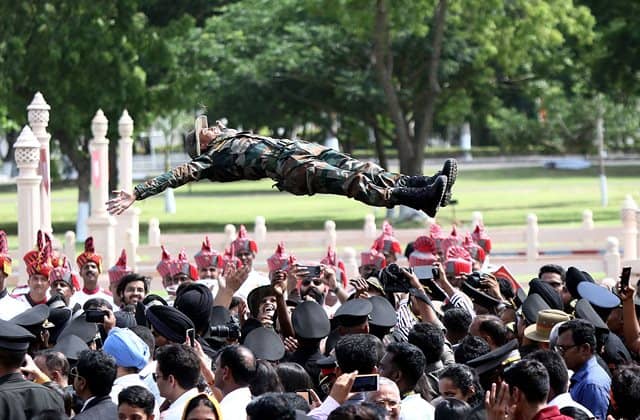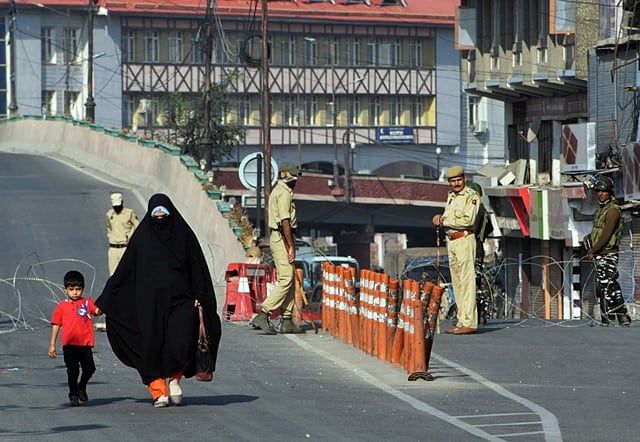
Month: September 2019

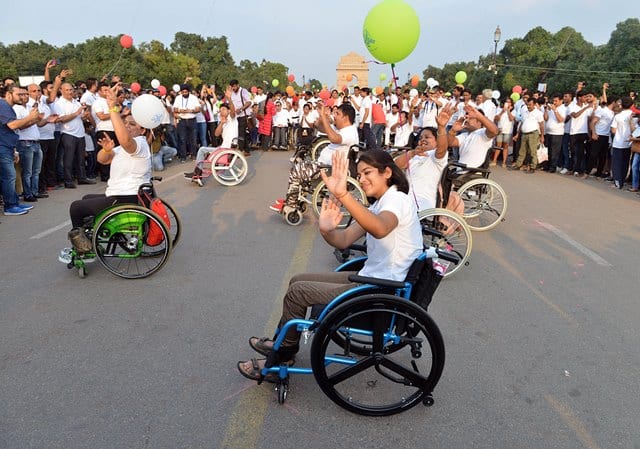
Wheelchair Rally On Spinal Injury Day
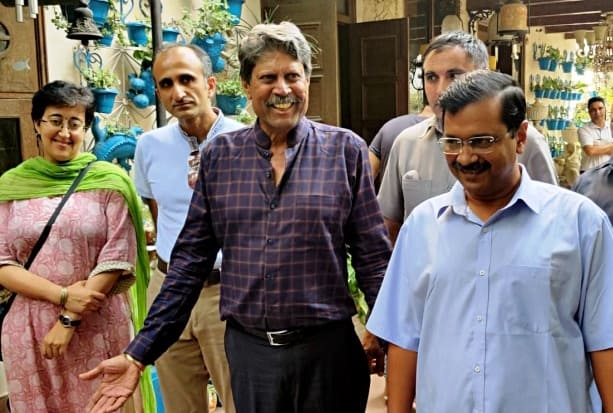
Kapil Dev Bats For Dengue Prevention
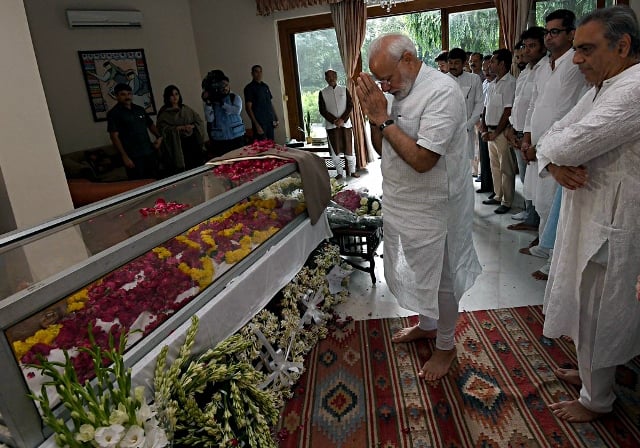
Modi Pays Last Respects To Jethmalani
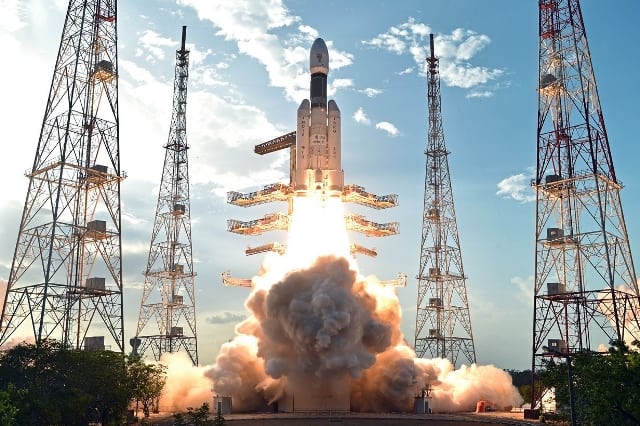
Vikram Lander Located On Moon: Sivan
The orbiter has clicked a thermal image of the Lander.
“We have found the location of Lander Vikram on lunar surface and orbiter has clicked a thermal image of Lander,” K Sivan told ANI over the phone.
However, the ISRO chief underlined that no communication has been established with the Lander yet.
“We are trying to establish a contact. It will be communicated soon,” he added.
He also maintained that it will be “premature to say anything”. “We are trying to establish contact with Vikram lander,” he added.
The lander Vikram was to land on the moon’s surface at 1.55 am on September 7. It had been descending for 12 minutes. Three minutes before that, it lost contact with Earth. It was 2.1 km above the moon’s surface when it lost contact with the ground station at ISRO headquarters in Bengaluru.
A success would have made India the fourth country to place a spacecraft on the moon after the then USSR, the U.S. and China. Also, India would have been the first country to reach close to the lunar south pole.
The Vikram Lander successfully separated from Chandrayaan-2 Orbiter on September 2. After revolving around the Earth’s orbit for nearly 23 days, the craft began its journey to the moon on August 14.
The mission took off from the Satish Dhawan Space Centre in Sriharikota on July 22. (ANI)
]]>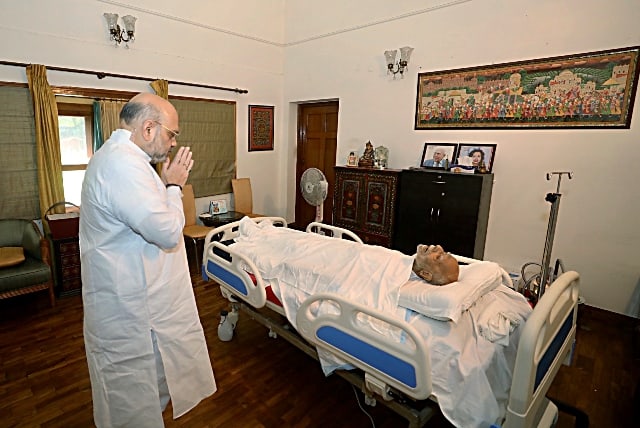
Legal Luminary Ram Jethmalani No More
Jethmalani served as the law minister and the urban development minister in the Atal Bihari Vajpayee cabinet. He had also served as the Chairman of Bar Council of India.
President Ram Nath Kovind and Prime Minster Narendra Modi were among various ministers and political leaders cutting across party lines condoled his death.
“Saddened by the passing of Shri Ram Jethmalani, former Union Minister and a veteran lawyer. He was known to express his views on public issues with his characteristic eloquence. The nation has lost a distinguished jurist, a person of great erudition and intellect,” Kovind wrote on Twitter.
The Prime Minister recalled Jethmalani as an exceptional lawyer and iconic public figure who made rich contributions both in court and Parliament.
Jethmalani was witty, courageous and never shied away from boldly expressing himself on any subject, Modi said in a tweet.
“One of the best aspects of Shri Ram Jethmalani Ji was the ability to speak his mind. And, he did so without any fear. During the dark days of the Emergency, his fortitude and fight for public liberties will be remembered. Helping the needy was an integral part of his persona,” the Prime Minister tweeted.
He said that he considers himself fortunate to have got numerous opportunities to interact with the advocate.
In a message, Modi said, “In these sad moments, my condolences to his family, friends and many admirers. He may not be here but his pioneering work will live on! Om Shanti.”
– ANI
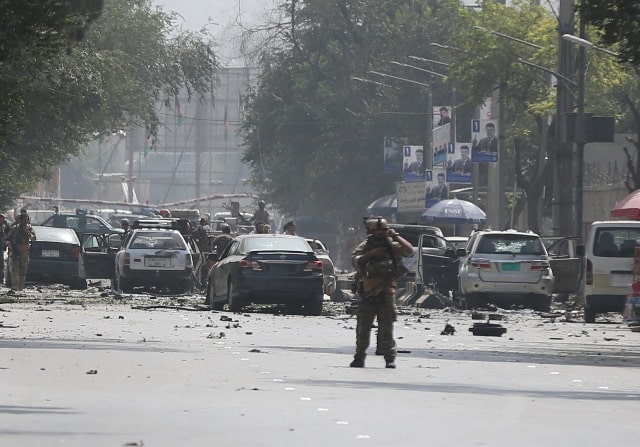
Trump Calls Off Peace Talks With Taliban
In a series of tweets, Trump said he also cancelled a “secret meeting” with the Taliban representatives and a separate meeting Afghan President Ashraf Ghani at Camp David on Sunday.
“Unbeknownst to almost everyone, the major Taliban leaders and, separately, the President of Afghanistan, were going to secretly meet with me at Camp David on Sunday. They were coming to the United States tonight,” he said.
“Unfortunately, in order to build false leverage, they admitted to an attack in Kabul that killed one of our great-great soldiers, and 11 other people. I immediately cancelled the meeting and called off peace negotiations,” Trump said in another tweet.
Attacking the Taliban, the US President said, “What kind of people would kill so many in order to seemingly strengthen their bargaining position? They didn’t, they only made it worse! If they cannot agree to a ceasefire during these very important peace talks, and would even kill 12 innocent people, then they probably don’t have the power to negotiate a meaningful agreement anyway. How many more decades are they willing to fight?”
The US has been negotiating with the Taliban in the last few months at Doha despite the group’s reluctance to hold direct talks with the Afghan government, which it views as a US puppet.
Earlier this week, US Special Representative for Afghanistan Reconciliation Zalmay Khalilzad said that the Trump administration had reached a deal ‘in principle’ to withdraw over 5,000 troops from Afghanistan in exchange for guarantees by the Taliban to not allow the war-torn country to be used as a base for attacks abroad. (ANI)
]]>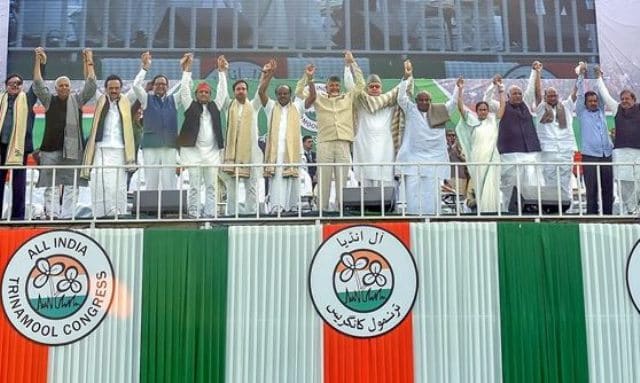
Why Regional Satraps Are Muted On Kashmir Issue
Participating in the debate on the abrogation of Article 370 in Jammu and Kashmir and the bifurcation of the state in Parliament last month, former finance minister P Chidambaram was perhaps the only speaker who focused extensively on the Modi government’s decision to unilaterally alter the status of a state and its far-reaching implications for the country’s federal structure.
Describing the move as “a misadventure, a catastrophic step”, Chidambaram maintained that the dismemberment of a state would lay down a dangerous precedent as the government would henceforth be able to carve out every other state in the country in a similar manner.
The former minister went on to underline: “All that they have to do is dismiss the elected government, impose President’s rule, dissolve the elected assembly, and ensure Parliament takes the power of the state assembly. The government then moves a resolution, Parliament approves it and the state is dismembered.”
That the Modi government’s decision on the division of Jammu and Kashmir has far-reaching implications for other states can hardly be denied. And yet most regional parties, which are otherwise extremely vocal on issues which have an adverse impact on federalism, have been nonchalant on this aspect. In fact, several regional parties including the Bahujan Samaj Party, the Telugu Desam Party, Aam Admi Party, YSR Congress, and Biju Janata Dal, which are not official members of the ruling alliance welcomed the government’s decision on Article 370 but were silent on the move to bifurcate the state.
And even parties like the DMK, the Rashtriya Janata Dal, the Samajwadi Party, the Trinamool Congress and the Janata Dal (U), which opposed the move referred to the bifurcation only cursorily. Instead, the arguments put forth by the representatives of these parties focused on the stealth with which the Modi government brought the Bills to Parliament without circulating them in advance which would allow MPs to scrutinise the provisions in detail.
For instance, Trinamool Congress spokesperson Derek O’Brien described the government handling as “procedural harakiri” while Tiruchi Siva of the DMK only went as far as to say that the Centre should have taken the consent of the Jammu and Kashmir assembly before going ahead with this move.
The DMK subsequently took the lead in organizing a protest rally of opposition parties in Delhi last month but here again, the leaders who participated did not attack the Modi government either on the abrogation of Article 370 or the bifurcation of the state of Jammu and Kashmir. They drew attention to the arrest of political leaders in the state and demanded their immediate release and also that normalcy be restored at the earliest and the clampdown on communication is removed. The day-long event was, at best, a token protest. Opposition leaders followed this up by attempting to visit the Kashmir Valley but were turned back from the Srinagar airport by the security agencies who said they were instructed not to allow them out.
Delhi chief minister and AAP convener Arvind Kejriwal, who has been campaigning for full statehood for Delhi which is presently a Union Territory with an assembly, surprised everyone when he came out in support of the Modi government’s decision to abrogate Article 370. But Kejriwal was unfazed when confronted with the contradiction in his stand, pointing out that a peaceful state cannot be compared with a disturbed border state.
Opposition leaders privately agreed that that the decision to divide Jammu and Kashmir could impact other states but said they were hemmed in from launching a severe attack against the Modi government on its J&K policy because it enjoyed widespread public support.
That’s the reason, they said, they had confined their criticism to the faulty process adopted by the government in this case, the arrest of political leaders and the overall lockdown in the state. “We are constrained because we cannot go against public sentiment,” a DMK leader pointed out. Consequently, DMK chief M K Stalin did not go beyond describing the decision as a “murder of democracy” while charging the BJP of not respecting the sentiments of the people of Jammu and Kashmir.
Ironically, even the Trinamool Congress has been muted in its criticism. Though Derek O’Brien described August 5 as “Black Monday” and a dark day for the country’s constitution, his party chose to walk out during the debate in Parliament instead of voting against the Bills.
Like other opposition parties, Trinamool Congress is also hemmed in by its dipping graph in West Bengal and the BJP’s growing popularity in the state. “Did you notice the number of times Amit Shah mentioned Shyama Prasad Mukherjee in his speech,” a Trinamool Congress MP pointed out, adding, “Ultimately we have to fight elections in our state.”
Shyama Prasad Mukherjee, founder of the Jan Sangh which later became the BJP was a staunch opponent of Article 370 and had waged a consistent battle against this provision. The BJP has been projecting Mukherjee as an icon of West Bengal in its campaign against the Trinamool Congress.
Assembly elections are due in West Bengal next year and given the religious polarization fanned by the BJP in the state, a beleaguered Mamata Banerjee has little option but to do a fine balancing act.
Bharatiya Janata Party leaders pointed out that if the opposition genuinely had strong views on the latest developments in Kashmir, it should have organized mass protests on the streets. “But they cannot do so because the people are not with them,” remarked a BJP leader.
]]>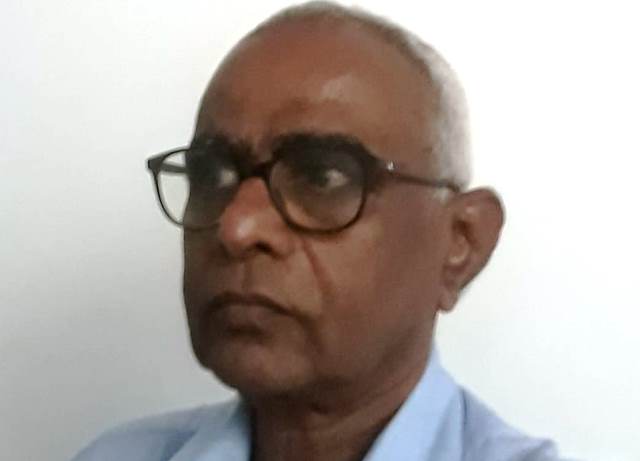
‘Reforms Must Among Bohra Muslims’
Yusuf Ali, 65, and thousands like him launched a reformist struggle in Bohra Muslim community. But for raising voice against practices such as female genital mutilation, Ali calls for govt help to keep the reformist struggle on.
There is a verse in Qur’an that says, ‘La Iqra Fid Deen’, which means there is no compulsion in religion. About two decades back, when we reiterated the verse, we were asked to leave the community. Carrying out a reformist movement among Muslims is not an easy task. It will probably take more than just one lifetime to make every person of our community understand what we stand for.
There is a good youth population among Bohra Muslims in Udaipur, who defy the medieval laws of the head priest called ‘Syedna’. They have a more positive and humane approach towards religion. Twenty years ago, when we formed the Bohra youth community, we were despised and were asked to leave each and every place of worship. But we never left hope and kept fighting for our rights. We are proud Muslim Bohras, we just don’t follow the medieval laws. We don’t impose religion on our children, they are free to pursue any kind of study or profession.
During initial years, we were threatened of dire consequences, but Allah has been with us. We are now a good thriving community who do not support practices such as, female genital mutilation (FGM), wearing skull caps, keeping beards without moustaches and most importantly paying taxes to the local Maulana and adhering to rules imposed on behest of the Syedna. The Maulana directs everything, right from the rituals that performed for welcoming a newborn to the last rites, the Maulana charges for everything. He even has a say in business dealings as well.
The main mosque of the Bohras in Udaipur is still under the control of the orthodox Bohra community. It is unbelievable how they have segregated us from the rest. There is a special barricade for us in the mosque, which we are not supposed to cross. We offer Namaz before the barricade that has been put exclusively for us, despite of the fact that Islam doesn’t allow discrimination among its followers.
Besides the mosque, there are a majority of religious institutions, in the city, which we are barred from entering as they belong to the orthodox group. We are a long legal battle away from gaining access to these places. The orthodox maulanas want to oust us from the community, but we are thriving due to our honest values and liberal views.
Bohras have traditionally been a closely-knit business community, but the new generations of Bohras are now doing everything. We don’t discriminate amongst our sons and daughters and we raise them as per the modern society and not the rules of the Maulana. We practice modern Islam.
I have seen enough of this battle. This is the right time for the government to step in and support the reformists. Without the government’s support, our efforts to reform the community will be wasted.
We reformers, constitute a population of about 15,000-16,000 in Udaipur. There are more in other cities. But so far we have been used by the politicians as a vote-bank. None of the politicians have kept their promise. Why would they? After all, the orthodox faction is also a strong vote-bank.
We need Prime Minister Narendra Modi’s attention. He promises to reform each section of the society. If he really wants reform among the Muslim communities in India, he must support us. The future generations will be grateful to him. We don’t want rights in the property. We don’t have financial greed. All we want is to be accepted in the community like we are. There must not be any compulsion to follow the maulana to remain in the community.
